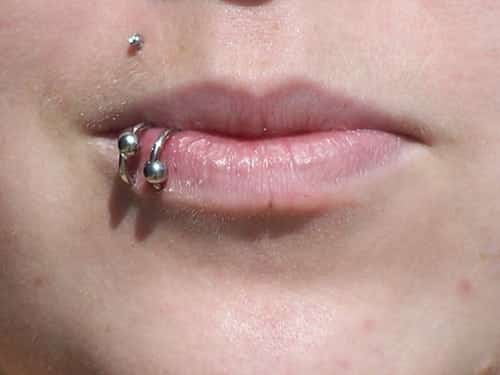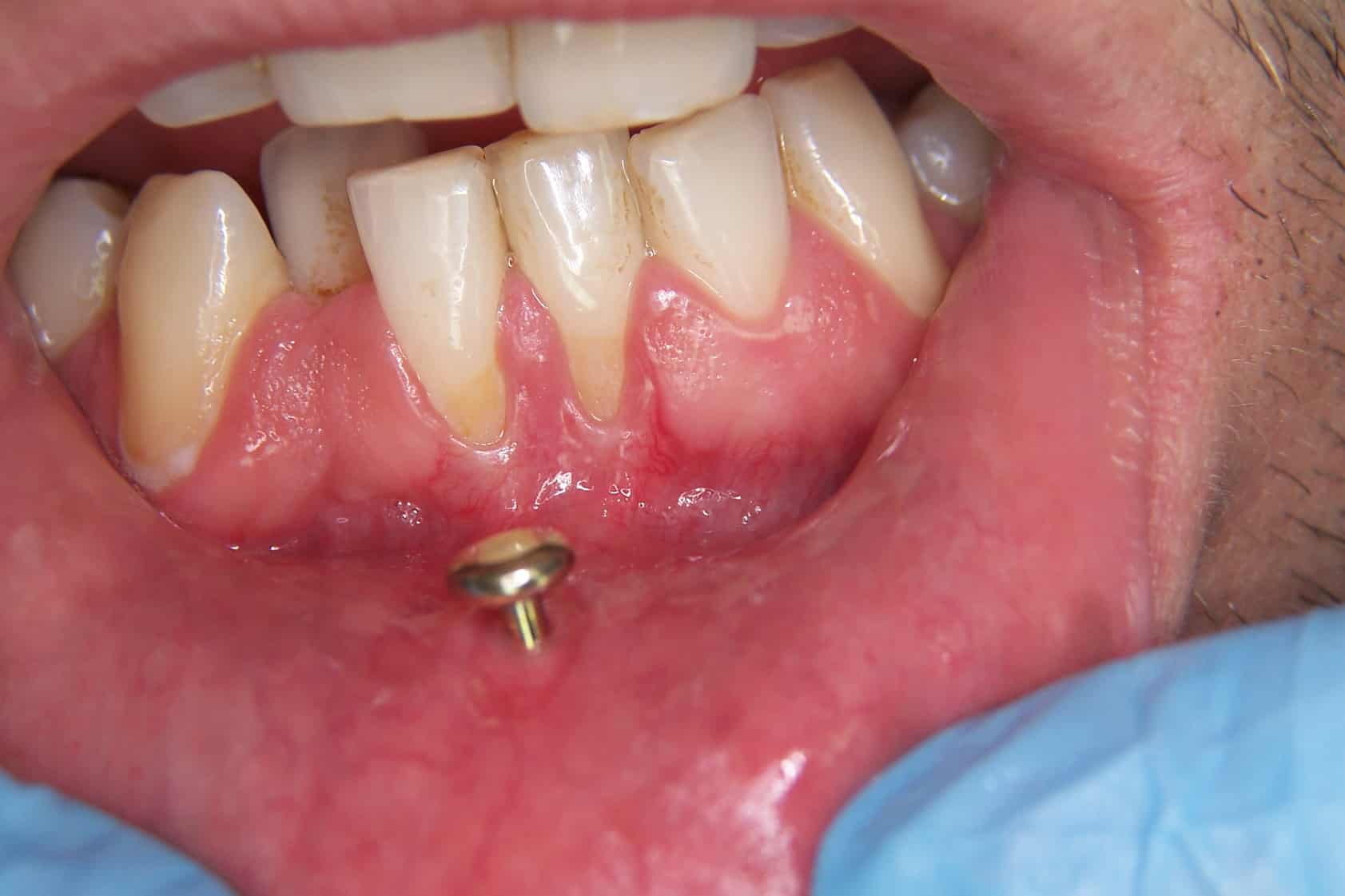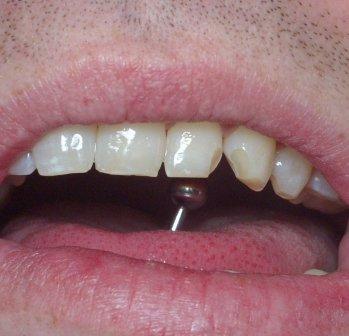Basics of Body Piercing
Body piercing is a form of modification, much like tattoos or plastic/cosmetic surgery. People choose piercings for many individualized reasons. Some people get piercings for religious or spiritual reasons. Sometimes it‘s for aesthetics or self-expression.
Ear and nose piercings are particularly widespread and well represented in history. The oldest mummified remains ever discovered were wearing earrings. This puts the practice of ear piercing dating back more than 5,000 years ago. Nose piercing is documented as far back as 1500 BC.
As you embrace the world of facial piercings, remember to prioritize your oral health and be mindful of the lasting implications.
Popular Facial Piercings

Did you know there are 15 different ways you can pierce your lip?
These piercings can be divided into two distinct categories:
- Standard Lip Piercing: is a single piercing done on or around the lip usually adorned with a captive bead ring or a labret stud.
- Bite Lip Piercing: is when a person has either 2 or 4 piercings done symmetrically on or around the lip.
Tongue piercings are another popular method of body modification. There are roughly 5 ways the tongue can be pierced, with several variations within each way.
Then there are the cheek piercings. The most common variation of this piercing is through the cheek into the oral cavity. These are usually referred to as Dimple Piercings. Cheek piercings are primarily a contemporary body modification and has not yet been found among historical body modifications.
The Lingering Health Effects of Facial Piercings
Naturally, there are a myriad of concerns when getting a facial piercing. Lip, tongue and cheek piercings are well known to cause significant dental and oral health complications.

Lip and tongue piercings can and will cause damage to the teeth and gums. Every responsible dentist, assistant and hygienist will tell you this. Most professional piercers know this, too. Metal lip and tongue jewelry will come into contact with the teeth chipping the enamel and causing cracks/breaks if the jewelry is accidentally bitten. The jewelry will also cause gum recession over time and may lead to the growth of gum disease. By having a consistent routine with your hygienist and dentist, some of this damage can be caught before it becomes a huge concern. But none of this is avoidable if you continue to wear the lip or tongue jewelry. That’s not to say wearing these bodily adornments is wrong or bad. Like any other decision you make concerning your body and your health, facial piercings should be looked at through all angles, with discretion and the understanding of all implications and lasting effects.

Let’s take a look at some of the risks associated with this kind of self-expression:
- Chipped Teeth
- Infection
- Nerve damage
- Gum disease and blood-borne diseases
- Speech problems
- Chewing difficulties
- Overproduction of saliva
It is important to always be aware of the jewelry in your mouth, as it can become a choking hazard.
Cheek piercings may also cause some dental issues, specifically the chipping and cracking of molar enamel, causing nerve damage to the face, as well as a secretion of saliva-like liquid from the puncture site. In some cases, damage is done to the lymph nodes in the area. Again, the decision to have your cheek pierced should be an informed one.
And let’s not forget, the oral cavity is full of germs! The chance of these piercings becoming infected with bacteria is much higher than any other piercing sight. Maintain good oral hygiene. Follow the instructions your piercer provided.
Before a facial piercing consider this
If you are thinking about getting your lip, tongue or cheek pierced, research all the facts. Talk with your dentist and piercer about all the health risks and other concerns you may have. Talk with people who already have piercings to get their perspective. Think about the specific reasons you want the piercings and weigh them against the very real and permanent effects of those piercings. And always remember, in 20 years, you may not want that piercing. But you will want your teeth.
P.S. If you are a parent who needs guidance talking to your teen about oral piercings, we’d be happy to help. Hearing about the risks involved from a professional might make your teen more willing to listen.